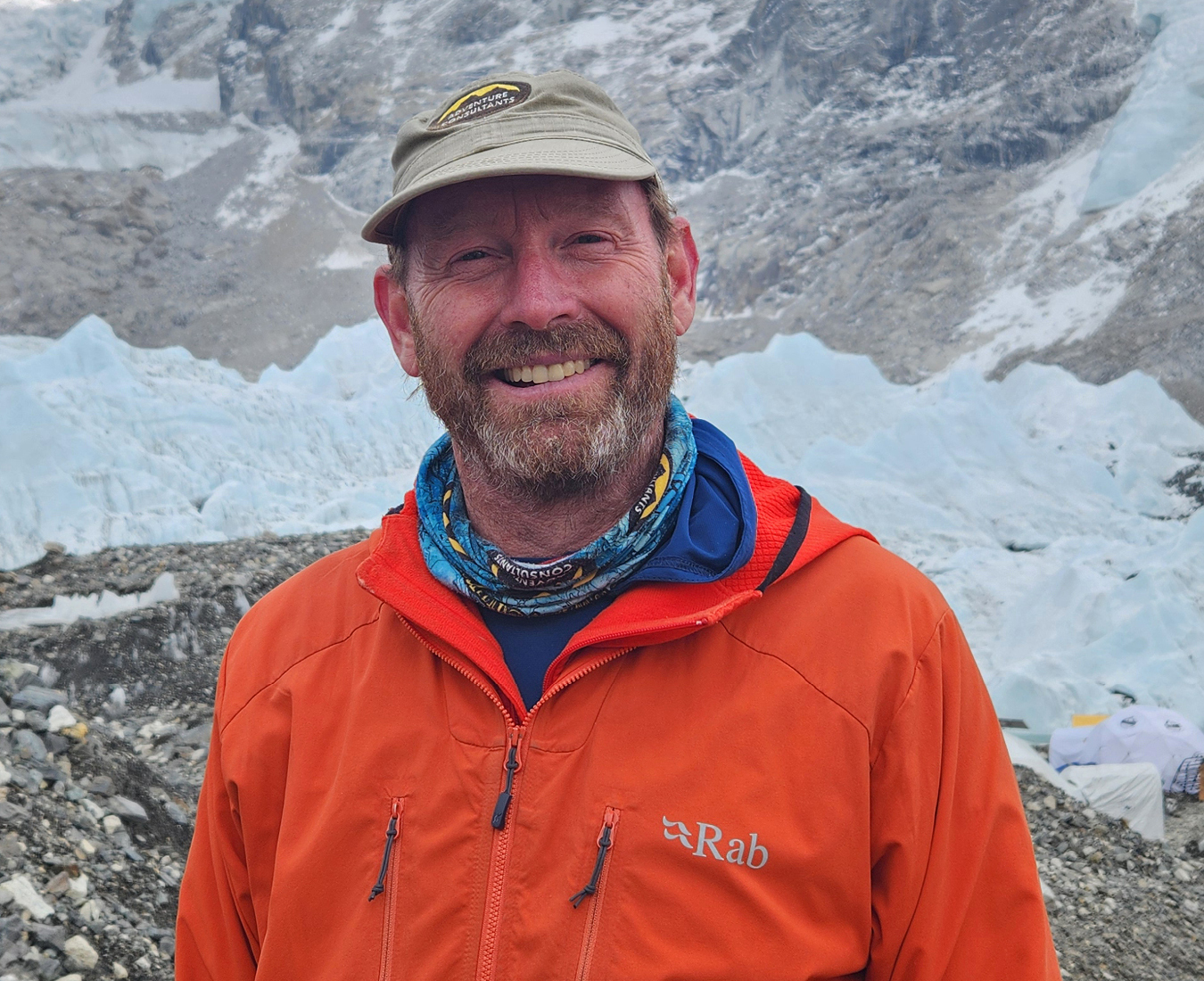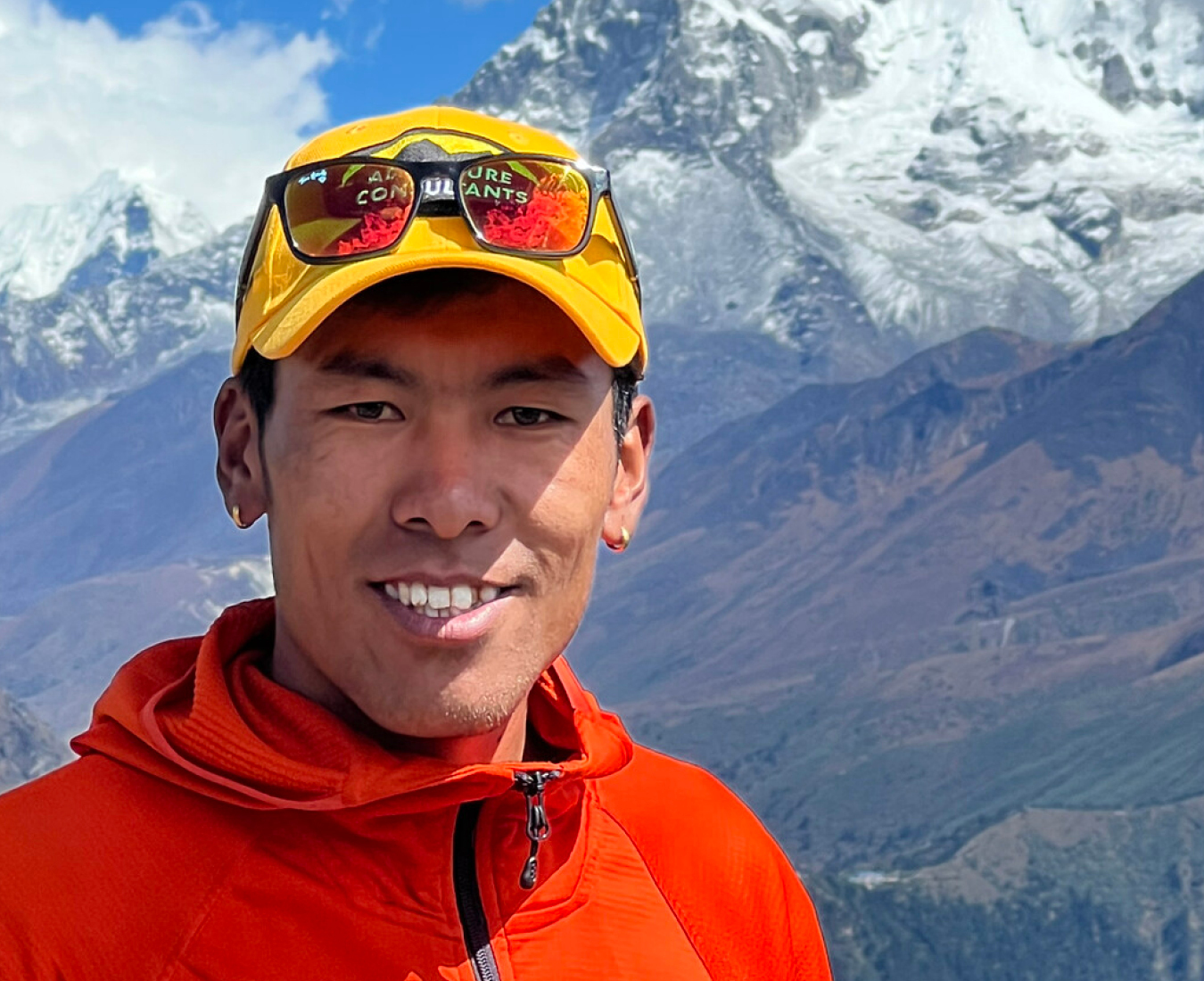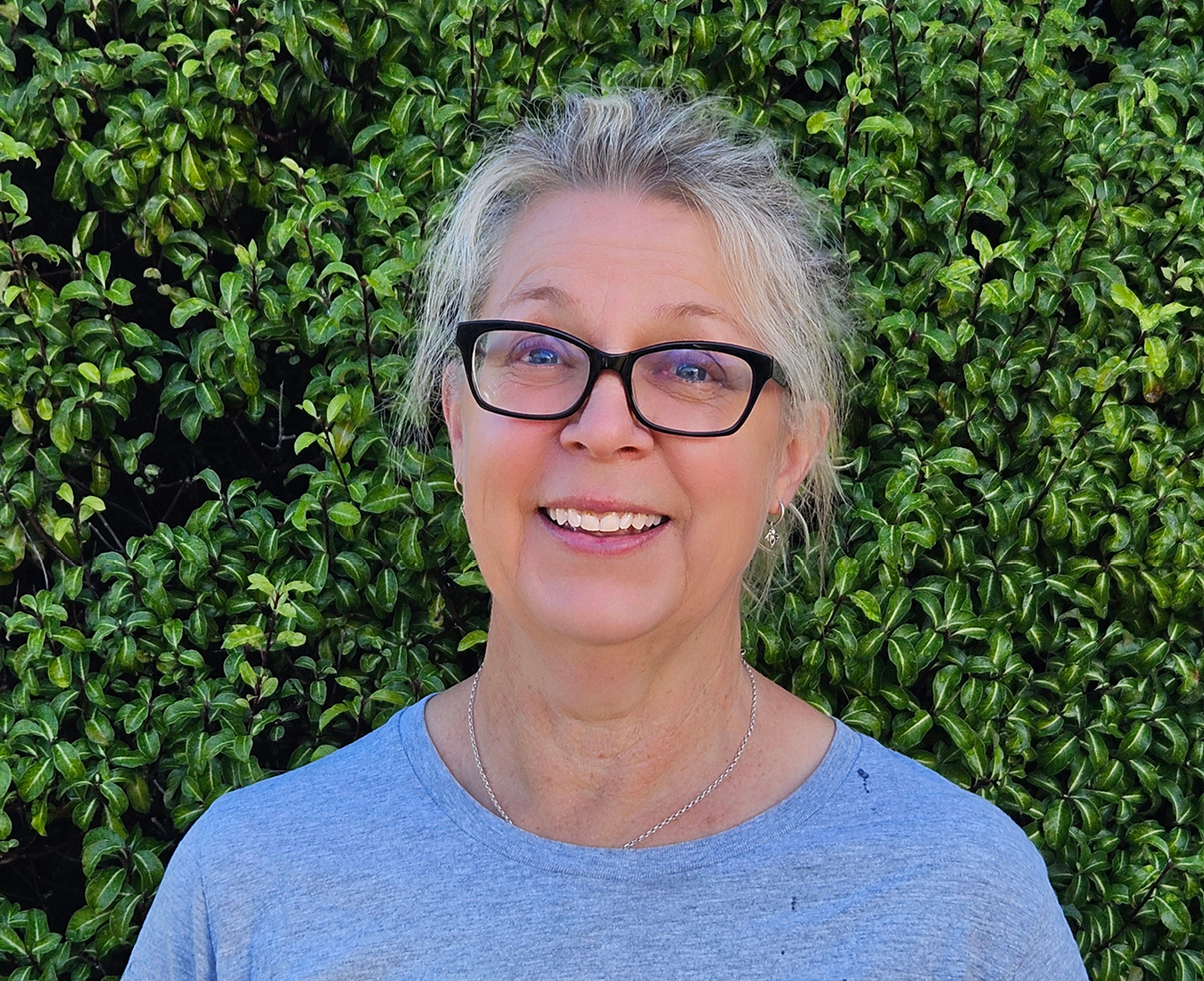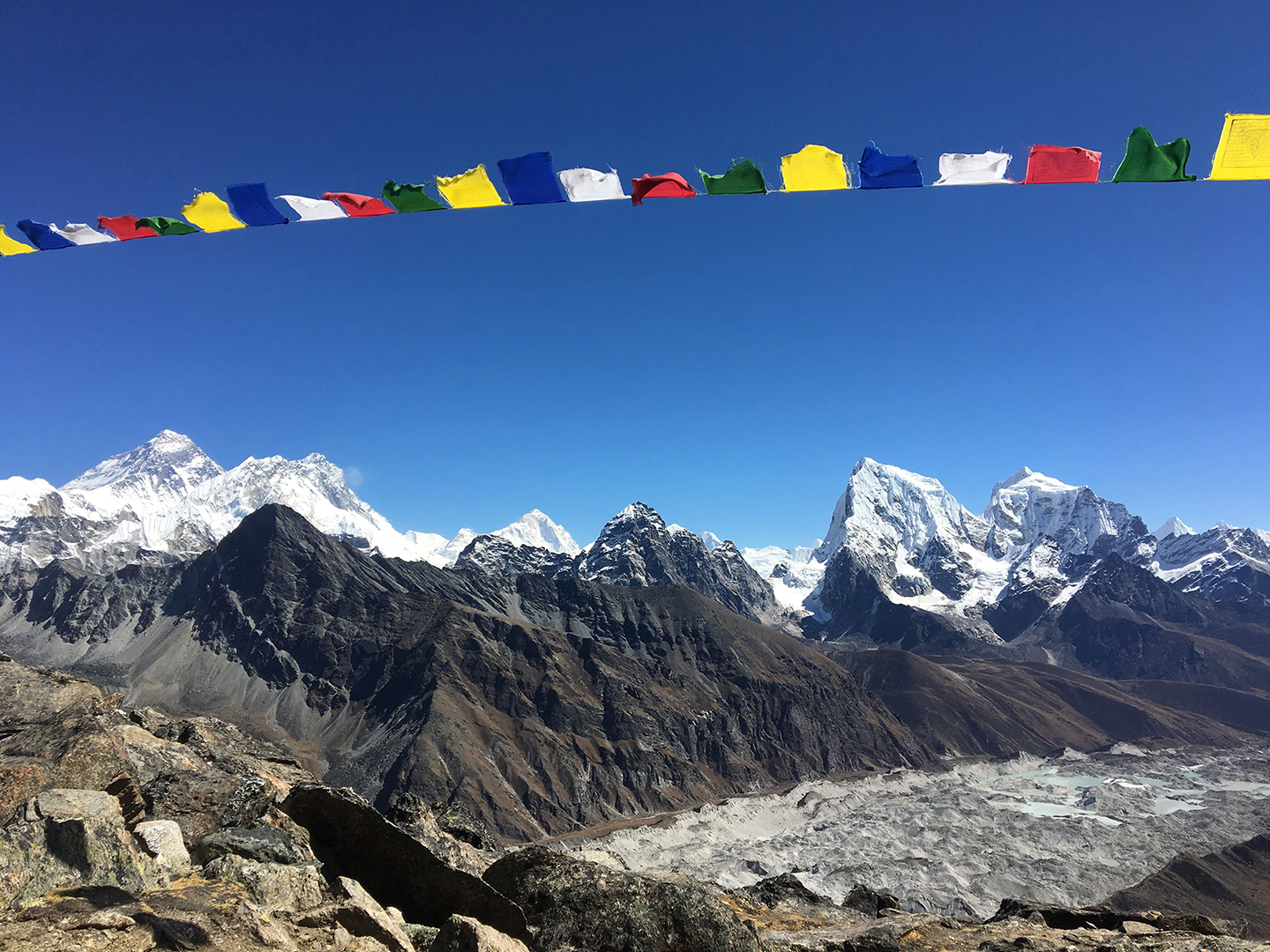The Khumbu Trek is challenging and you MUST train for several months prior to departure to make your trip as enjoyable as possible. Training should include regular walking on hills, in combination with swimming, light running or biking and gym work to develop strength. We recommend the Everest Base Camp Trek Training plan from Uphill Athlete.
This stunning trek visits many different parts of the beautiful Khumbu Valley, treks all the way to Everest Base Camp and climbs Kala Patar.
We offer this incredible journey in both the pre- and post-monsoon seasons, with the post-monsoon known for clear autumnal weather and the pre-monsoon for spring flowers.
Our guides and Sherpa friends will offer you an insight into the Sherpa homeland and their way of life. The trek includes an optional traverse of the moderately severe Kongma La pass which has unsurpassed views of the peaks in the Everest region.
We initiate the journey with an exciting insight into the traditions and religions in Kathmandu. Step back a few hundred years with visits to the bustling and exciting monasteries including the famed Monkey Temple.
From here a short flight takes us into the Khumbu Valley and gateway to Mt Everest. We trek through fields passing by ancient villages and forests, eventually moving into the high mountain regions. We stop for two nights in Namche Bazaar, hub of the Sherpa homeland and bustling with activity. We continue with the trek up the valley towards Mt Everest climbing to Kala Patar (18,221ft/ 5,554m), the most famous viewpoint for seeing Everest from close quarters.
The trek includes an optional traverse of the moderately challenging Kongma La pass which has unsurpassed views of the peaks in the Everest region, and travels alongside the Island Peak Expedition team.
- Visit many different parts of the beautiful Khumbu Valley
- Trek all the way to Everest Base Camp and climb Kala Patar
- We initiate the journey with an exciting insight into the traditions and religions
- Cross the challenging Kongma La
Trek Level
Trek Level
Advanced
Elevation
Elevation
5,554m/18,222ft
Duration
Duration
24 days
Location
Location
Nepal
Meet in Kathmandu, team briefing
Gear check, optional sightseeing Kathmandu Valley
Fly to Lukla 2,860m/9,383ft and trek to Phakding 2,610m/8,563ft, 3hrs
Trek to Namche Bazaar 3,440m/11,286ft, 5hrs
Sightseeing in Namche Bazaar
Short trek to Khumjung 3,780m/12,402ft and optional climb of Khunde Peak 4,200m/13,780ft, overnight Khumjung, 4-5hrs
Trek to Phortse 3,950m/12,959ft, 5-6hrs
Trek to Pheriche 4,270m/14,009ft or Dingboche 4,410m/14,469ft, 5-6hrs
Rest day
Trek to Lobuche 4,940m/16,207ft
Trek to Gorak Shep 5,165m/16,950ft, 3hrs, climb Kala Patar 5,554m/18,222ft, 3hrs
Trek to Everest Base Camp 5,300m/17,400ft, 2hrs, and return to Lobuche, 5hrs
Rest day
Trek over Kongma La Pass 5,535m/18,159ft and on to Chhukung 4,730m/15,518ft, 9hrs
Ropes training and rest day in Chhukung, optional ascent of Chhukung Ri 5,550m/18,209ft, 6hrs
Day trip to Island Peak Base Camp 4,970m/16,300ft, 5.5 hrs
Explore the valleys above Chhukung with a trekking Sherpa
Rest/Contingency Day
Trek to Pangboche 3,985m/13,074ft, 3-5hrs
Trek to Namche Bazaar, 5hrs
Trek to Lukla, 7hrs
Contingency day
Flight from Lukla to Kathmandu
Trip ends

Departures and Pricing
Looking for a specific date? Book a private trek
PREPARE
No technical experience required.
No prior altitude experience required.

Because we want you to remember this trek for being so much more than just a hike, we at Adventure Consultants have taken enormous pleasure in planning a fusion of all the best components that we know make this a truly memorable experience.
We are renowned for our quality of service and the strategy applied to our treks. Our reputation is attributed to meticulous planning and experienced logistics coordination.
We have a philosophy of investing in every trip to offer our trekkers the best possible experience.
We employ strong and specialised trek leaders and Sherpa staff, who are some of the most pre-eminent in the industry. We pride ourselves on operating with small teams and the best back-up and support available. This includes nutritious and ample quantities of food, comfortable base camp facilities, reliable communications systems and the necessary medical back up. Our staff are the most affable western or Sherpa guides working in conjunction with our excellent cooking teams, to promise you an experience of a lifetime!
Many of our team members come to us because they have seen us in action on a previous trip and decide to opt for our level of service and proven experience. Others return because they know we do our very best to make our trips safe and successful.

The price of your trip includes the following:
- Nepalese Government royalty fees
- All trek organisational requirements
- All trekking permits
- Airport transfers in Kathmandu
- Helicopter air transport within Nepal
- Accommodation in lodges or tents ex Kathmandu
- All group equipment for the trek (tents, kitchen etc.)
- All trek staff, including Western and Sherpa guides, porter support
- Transport of 15kg of personal equipment
- All meals after departing Kathmandu and before arriving back in Kathmandu
- Back up medical services











